Latest DePIN News

9 months ago
Coinbase Adds Aethir and Maple Finance to Listing Roadmap, Prices Surge
Coinbase has recently announced the addition of two promising tokens, Aethir (ATH) and Maple Finance (SYRUP), to its listing roadmap, which has led to significant price surges for both digital assets. This announcement was made via a post on the social media platform X, highlighting Coinbase's commitment to transparency and preventing front-running of tokens prior to their official listing. The inclusion in the roadmap suggests that these cryptocurrencies may soon receive support from the popular exchange, prompting investors to take notice.
Following the announcement, Aethir's price skyrocketed from a low of $0.0318 on March 6th to a peak of $0.0435 on March 7th, marking an impressive gain of approximately 36.79%. Similarly, Maple Finance experienced a surge, rising from $0.137 on March 7th to $0.193 on March 8th, which translates to a 40% increase. However, both tokens have since retraced their gains, with current valuations at $0.0371 for Aethir and $0.165 for Maple Finance.
Aethir is a decentralized cloud computing protocol launched in June 2024, designed to enhance high-performance graphics processing unit (GPU) capabilities for AI applications and blockchain-based video games. On the other hand, Maple Finance, established in 2021, operates as a borrowing and lending protocol that facilitates under-collateralized loans for borrowers and allows lenders to earn yields by providing liquidity. The recent developments underscore the growing interest in AI and DeFi sectors within the cryptocurrency landscape.

9 months ago
Navigating Regulatory Challenges in Decentralized Physical Infrastructure Networks
The era of aggressive crypto enforcement led by former U.S. Securities and Exchange Commission (SEC) Chair Gary Gensler may have passed, but the regulatory challenges facing decentralized physical infrastructure networks (DePIN) remain unresolved. Even with a more pro-crypto stance from the current administration, the lack of regulatory clarity continues to stifle innovation and growth in the sector. DePIN integrates blockchain with real-world infrastructure, ranging from decentralized cloud services to telecommunications and environmental data collection. This hybrid nature creates a regulatory grey area, leaving DePIN projects uncertain about compliance requirements.
Despite the growing importance of DePIN solutions, the SEC has failed to articulate clear rules regarding their governance and tokenomics. The absence of specific regulations forces DePIN projects to navigate vague compliance landscapes, diverting critical resources from innovation to legal expenses. A more structured regulatory framework should address key areas such as the classification of tokens, ensuring that DePIN tokens, which often serve functional purposes, are not misclassified as securities. Establishing clear rules for issuance and usage would protect investors while enabling sustainable growth.
Moreover, robust privacy regulations are essential for DePIN projects that collect real-world data. A transparent regulatory framework should outline data storage, protection, and monetization policies to maintain user trust. Additionally, many DePIN initiatives involve cross-border hardware deployments, raising compliance issues with diverse national laws. Aligning regulatory frameworks across jurisdictions would reduce barriers to growth. The SEC has an opportunity to shift from punitive enforcement to proactive guidance, creating a balanced regulatory approach that encourages innovation while ensuring compliance. By establishing clear regulations, policymakers can unlock DePIN’s full potential, enhancing connectivity, security, and sustainability in the blockchain space.
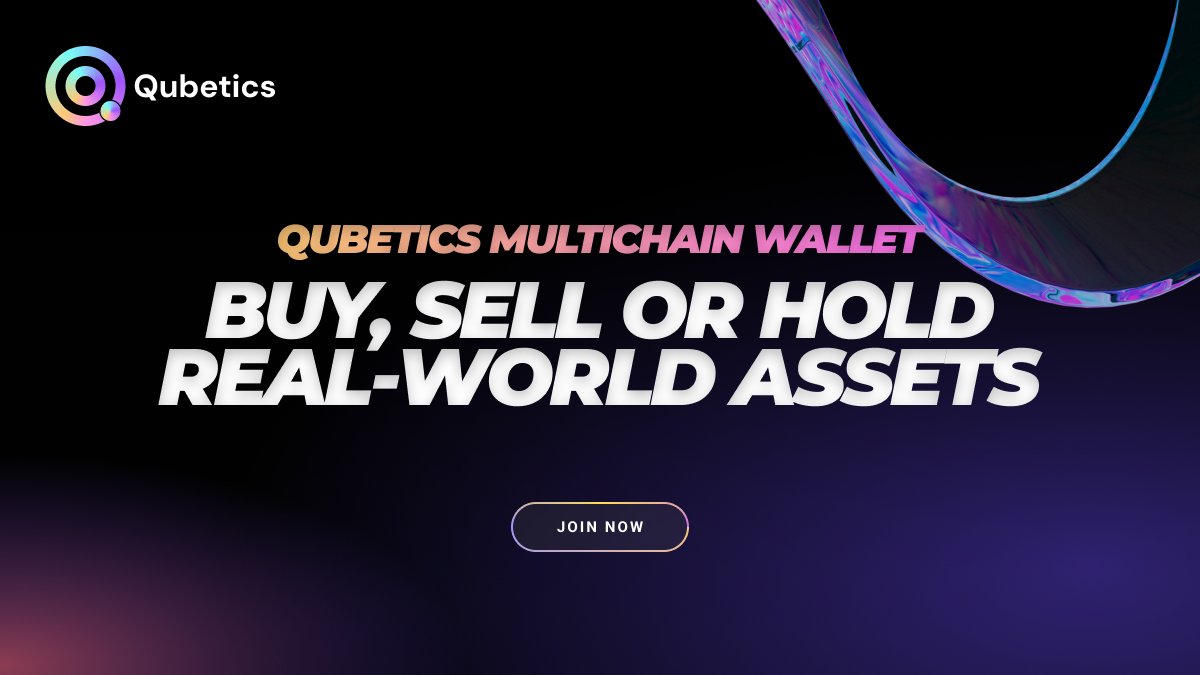
9 months ago
Innovative Projects Shaping the Next Bull Run in Cryptocurrency
The cryptocurrency landscape is witnessing a surge of innovative projects as we approach the next bull run. Among the notable players are Qubetics, Bitcoin Cash, and Bittensor TAO, each offering unique solutions that address critical issues within the blockchain ecosystem. Qubetics stands out with its non-custodial multi-chain wallet, which enhances user experience by allowing secure management of various cryptocurrencies. Meanwhile, Bitcoin Cash continues to focus on scalability and usability as a peer-to-peer electronic cash system, while Bittensor TAO integrates artificial intelligence with decentralized networks, paving the way for a new era in digital finance.
Qubetics is currently in its 24th presale stage, having sold over 496 million tokens and raised more than $14.6 million. Analysts predict a significant return on investment, with projections suggesting the token could reach $15 after the mainnet launch. The wallet's design emphasizes security and decentralization, appealing to both individuals and businesses. Strategic partnerships with 1inch and SWFT Blockchain further enhance its functionality, making it a compelling option for users seeking efficient and secure cryptocurrency interactions.
As Bitcoin Cash navigates market fluctuations, analysts forecast a potential price drop, reflecting the challenges it faces in reclaiming its previous market position. Conversely, Bittensor TAO's focus on AI and machine learning positions it as a revolutionary player in the decentralized finance space. With the next bull run on the horizon, Qubetics, Bitcoin Cash, and Bittensor TAO are set to play pivotal roles in shaping the future of the cryptocurrency landscape, each addressing unique challenges and opportunities within the market.
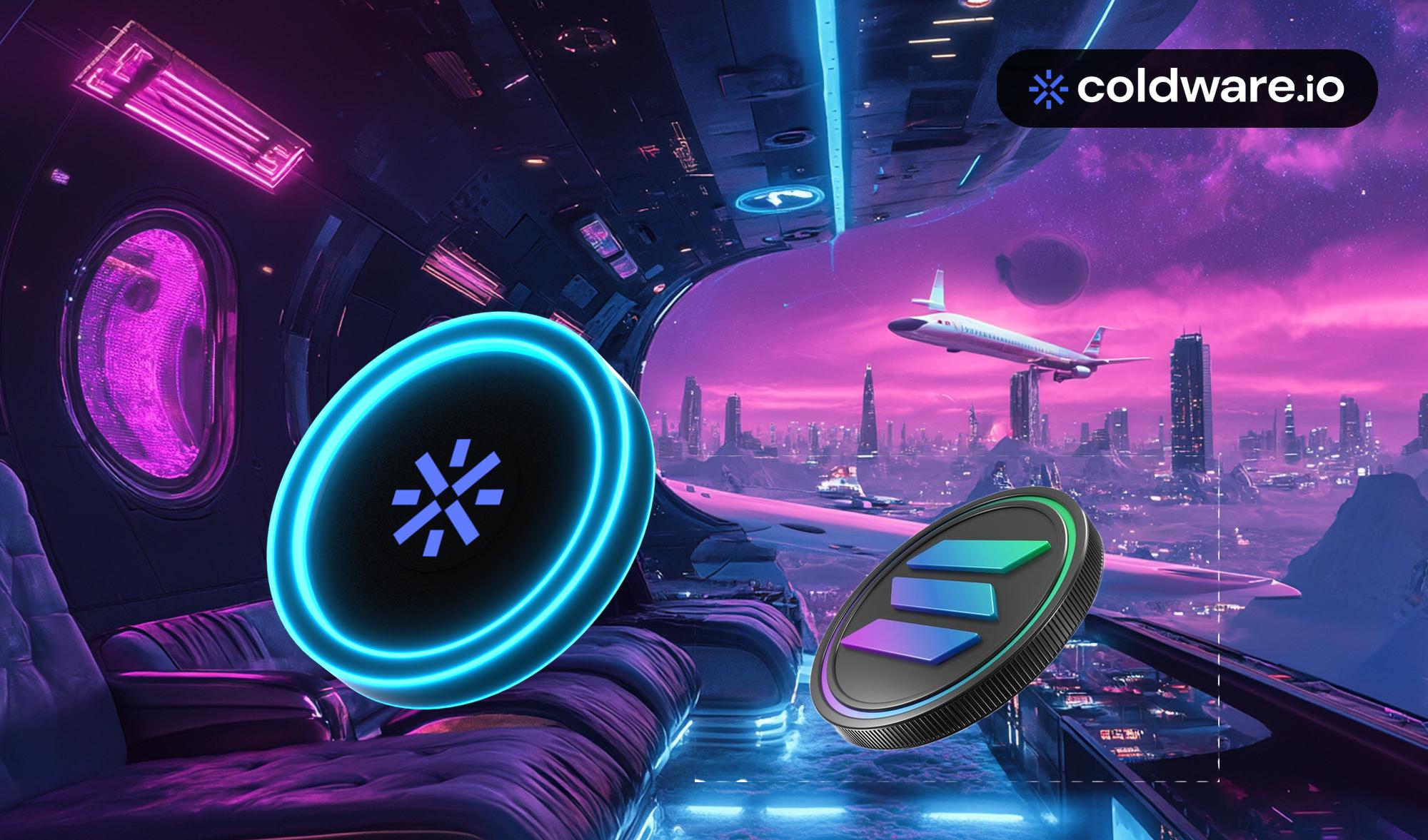
9 months ago
Coldware Emerges as a Strong Competitor to Solana in Blockchain Innovation
The cryptocurrency landscape is witnessing a significant evolution, with Coldware (COLD) emerging as a formidable competitor to established platforms like Solana (SOL). Coldware is leveraging its innovative DePin (Decentralized Physical Infrastructure Networks) model alongside Internet of Things (IoT) technology to create a unique ecosystem that addresses scalability and real-world applications. This integration aims to facilitate the development of decentralized networks that can be applied in various sectors, including smart cities and energy grids, thereby providing a sustainable and scalable solution for users seeking more than just fast transactions.
While Solana has been celebrated for its high-speed transactions and low fees, it faces increasing scrutiny due to network congestion and scalability issues during peak usage. These challenges raise concerns about Solana's ability to support long-term growth as demand for decentralized applications (dApps) and decentralized finance (DeFi) continues to rise. In contrast, Coldware's focus on decentralized physical infrastructure and IoT integration positions it as a strong alternative, potentially attracting investors looking for innovative solutions that extend beyond traditional blockchain functionalities.
As Coldware successfully raised $1.3 million during its presale, the project is poised for significant growth. The combination of decentralized finance and IoT is likely to appeal to both institutional investors and everyday users, further enhancing Coldware's market position. As the rivalry between Coldware and Solana intensifies, the blockchain community is keenly observing how Coldware's unique approach could redefine the landscape, potentially leading to a new era of blockchain technology that prioritizes real-world integration and sustainability over mere transactional speed.
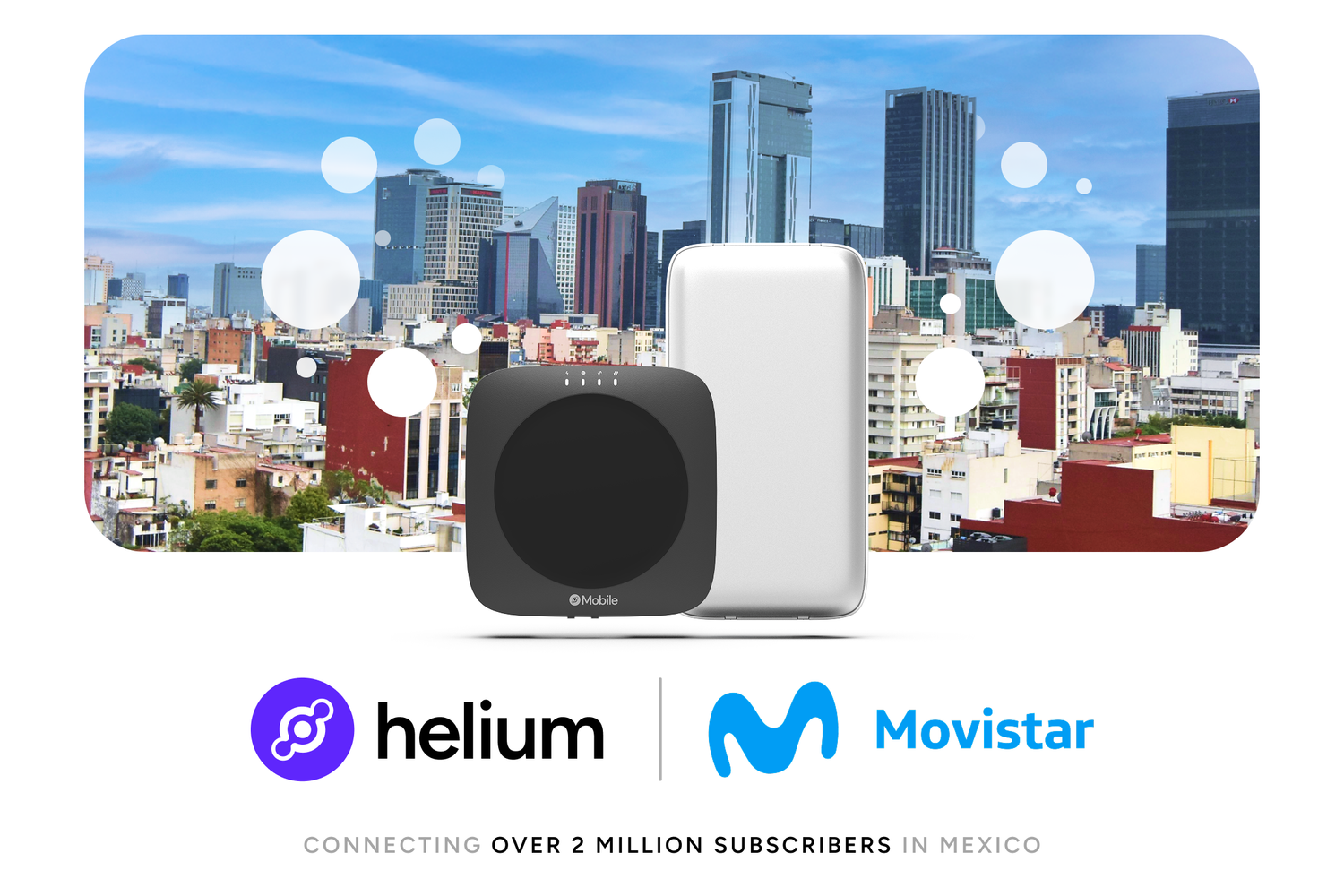
9 months ago
Helium Expands Partnership with Movistar in Mexico
Helium Expands into Latin America After Successful Pilot
In a tremendous step forward for Solana DePIN, Helium has announced a strategic partnership with Movistar, one of Mexico’s largest telecommunications providers. With over 300 additional Mexico-based sites, the Helium Network will enable over 2.3M Movistar Mexico subscribers to access and contribute to the world’s fastest growing decentralized mobile network. As part of the collaboration, Helium Network hotspots will be distributed in Movistar retail stores, boosting the DePIN providers credibility in Latin American markets. Movistar will also be able to resell Helium Network coverage to other local MVNOs (Mobile Virtual Network Operators).
Helium X Movistar Pilot Success
After spreading like wildfire across the United States, Helium Network begins global expansion in Latin America. In 2024, Helium and Movistar operated a pilot program in Mexico City and Oaxaca facilitating mobile data offloading. On top of expanding Helium Network’s reach and adoption the pilot also enabled Movistar to reduce operating costs. This allowed the collaboration to deliver more affordable and efficient mobile internet access to millions of Movistar subscribers across the country.
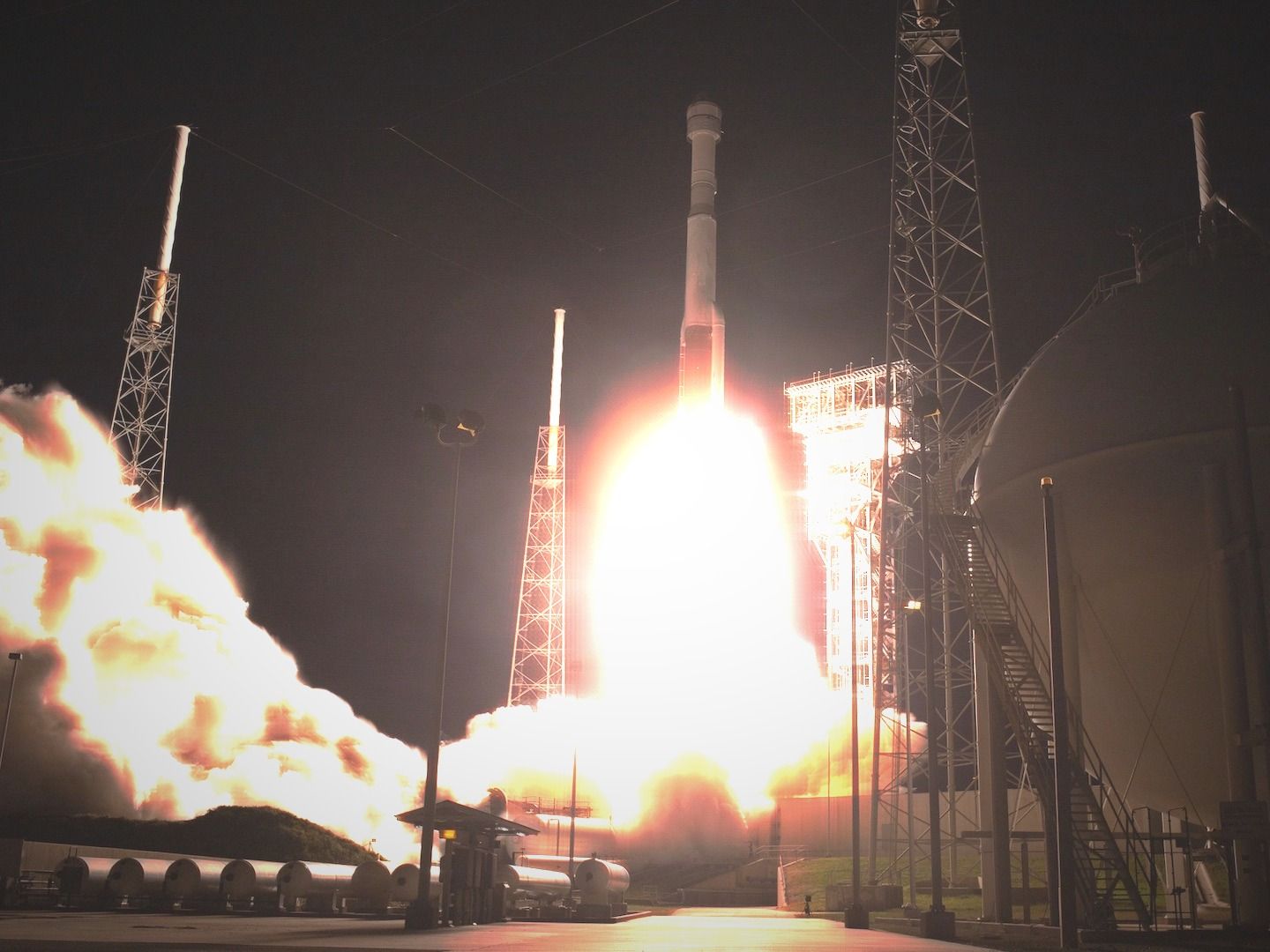
9 months ago
Wingbits: Revolutionizing Aviation Data Tracking
Wingbits: Revolutionizing Aviation Data Tracking
The Swedish startup, Wingbits, is challenging established players like FlightAware and Flightradar24 in the aviation data industry with a decentralized approach. By leveraging blockchain technology, Wingbits is rewarding hobbyist data collectors through its decentralized physical infrastructure network project, DePIN. This innovative project aims to create a tamper-proof tracking network by launching a satellite in collaboration with Spire Global, carried by SpaceX's Transporter-13 mission. The satellite will validate Wingbits' ground data, enhancing the accuracy of the information provided by the company.
Wingbits' CEO, Robin Wingardh, highlighted the significance of the satellite launch during Consensus Hong Kong. The company's existing network of 2,200 on-the-ground nodes managed by flight enthusiasts worldwide will be complemented by the satellite, further strengthening the community-powered tracking network. Unlike traditional industry players, Wingbits rewards its data providers with Solana testnet tokens, fostering a global network of contributors from over 90 countries tracking 120,000 unique flights daily. The reward system allows contributors to exchange tokens for various services, such as air miles and airport lounge access.
The addition of satellite-tracking capabilities marks a significant milestone for Wingbits in its mission to disrupt the aviation data industry. By ensuring data accuracy and protection against spoofing, the company aims to set itself apart from competitors like FlightAware and Flightradar24. With recent funding of $5.6 million from investors like Borderless Capital and Bullish Capital, Wingbits is poised to expand its operations and revolutionize flight tracking in the era of Web3.
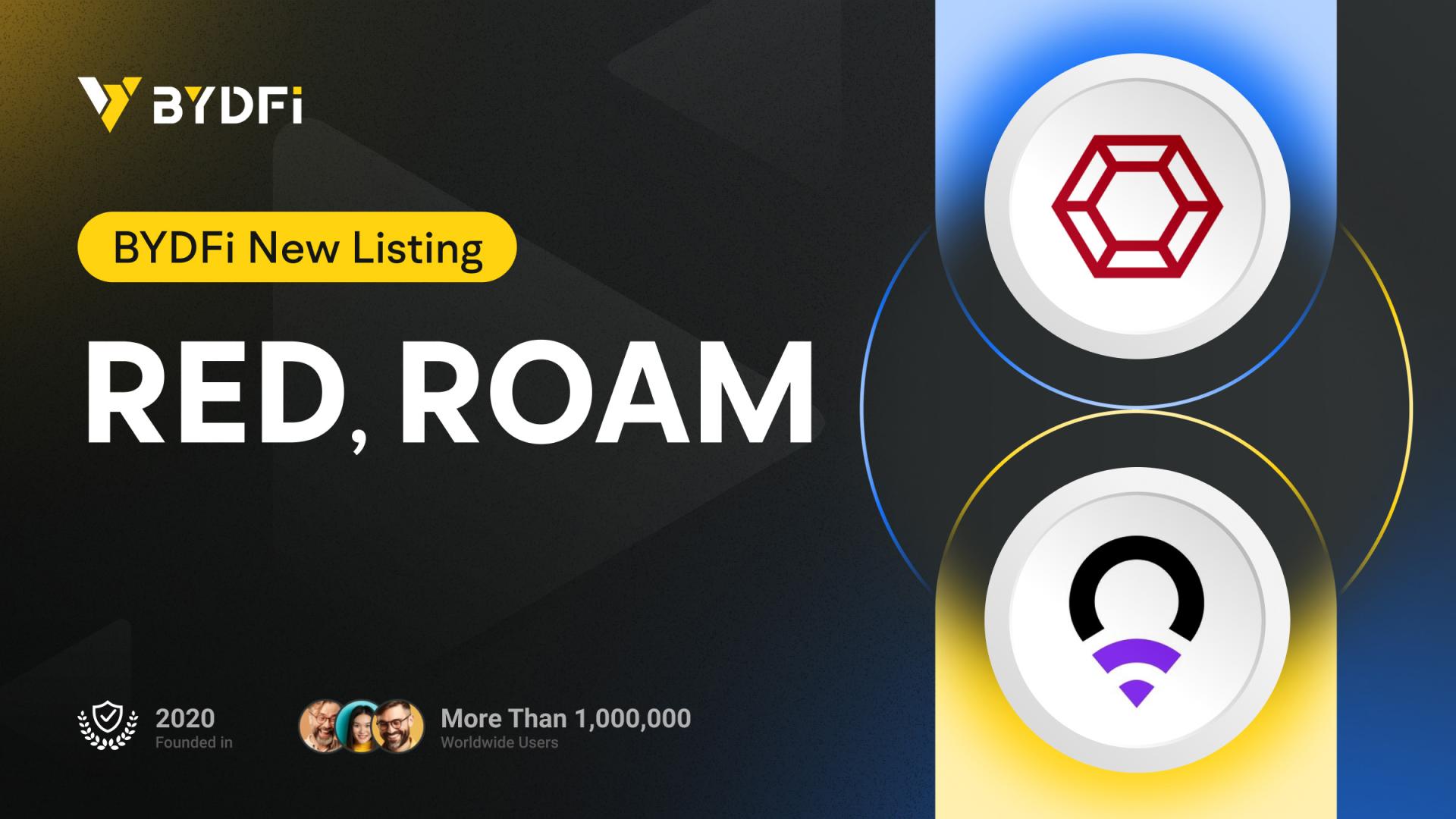
9 months ago
BYDFi Expands Trading Options with ROAM and RED Launch
On March 7, 2025, BYDFi, a prominent global cryptocurrency exchange, announced the launch of two new trading pairs: ROAM/USDT and RED/USDT. This expansion aims to enhance investment opportunities for traders by introducing Roam (ROAM) and RedStone (RED), both of which are pivotal projects in the Web3 infrastructure sector. Roam focuses on creating a decentralized global WiFi roaming network, covering over 190 countries and connecting 4.5 million WiFi hotspots. With more than 2.3 million registered users, Roam has established itself as a leader in Decentralized Physical Infrastructure (DePIN) and has secured over $10 million in funding from notable investors, including Anagram and Samsung Next.
Roam's innovative approach leverages advanced technologies such as OpenRoaming and eSIM to facilitate seamless global WiFi connectivity. It emphasizes user privacy and security through Decentralized Identity and Verifiable Credentials (DID+VC). Additionally, Roam employs AI algorithms to optimize network resources, thereby improving connection stability and bandwidth efficiency. The native governance token, $ROAM, incentivizes users to contribute to the network, currently priced at $0.3951 with a significant trading volume increase.
On the other hand, RedStone is a modular decentralized Oracle that enhances data transmission for DeFi applications across more than 70 blockchain networks. Its unique design allows for efficient data retrieval and robust security, making it a strong competitor in the Oracle space. RedStone recently completed a $15 million Series A funding round and supports over 130 DeFi projects. The native utility token, $RED, is currently priced at $0.6016, reflecting a remarkable surge in trading activity. BYDFi continues to expand its offerings, now supporting over 600 cryptocurrencies and introducing exclusive rewards for its users as part of its ongoing commitment to provide a top-tier trading experience.

9 months ago
Consensus Hong Kong 2025: A New Era for Web3 and Blockchain
The Consensus Hong Kong 2025 event marked a significant milestone for the city, establishing it as a vibrant hub for Web3, blockchain, and cryptocurrency. This was the first time the event was held in Hong Kong and the first occurrence outside the US in five years. The conference, organized by CoinDesk, attracted industry leaders and innovators to discuss the evolving regulatory landscape and the institutional adoption of digital assets. With Hong Kong officially recognizing Bitcoin and Ethereum as proof of wealth, the city is positioning itself as a global crypto leader, emphasizing Asia's growing influence in shaping global crypto regulations.
Terri MechKenna, a Humanoid Resources Intern, represented Auki at the event, showcasing the company's commitment to advancing robotics and AI in the blockchain space. Terri's experience included navigating the bustling convention hall, engaging with attendees, and participating in various meetups, including Sui Connect, which brought together Web3 enthusiasts. His interactions highlighted the importance of networking in the rapidly evolving tech landscape. Despite the challenges of mobility in crowded environments, Terri successfully showcased Auki's vision for decentralized machine perception and spatial computing.
As Consensus concluded, the discussions emphasized the need for regulatory clarity to foster blockchain adoption in Hong Kong and beyond. The potential for Hong Kong to rival other global crypto hubs like Dubai and Singapore is becoming increasingly evident. With China's leadership in robotics manufacturing, the integration of Web3 technologies could enhance the industry's capabilities. Auki's mission to build a decentralized network for machine perception aligns with the broader goal of improving collaboration between humans and AI, paving the way for a more interconnected future in the digital landscape.

10 months ago
Hivello Integrates with Nosana to Enhance GPU Earnings and Expand DePIN Opportunities
Hivello Holdings Ltd has announced its integration with the Nosana network, a significant move aimed at enhancing passive income opportunities for users leveraging GPU resources. This partnership is particularly timely, given the increasing demand for decentralized GPU power driven by the rapid growth of generative AI applications. Justin Rosenberg, CEO of Blockmate Ventures, emphasized that this integration will not only fill a critical supply gap in decentralized computing but also boost GPU node participation, allowing users to earn higher yields on their investments.
The collaboration with Nosana positions Hivello to tap into one of the most lucrative decentralized physical infrastructure networks (DePIN) for GPU-based compute. Users can now contribute their idle GPU power to support AI model training and software development, thereby maximizing their earnings. This integration simplifies the process for users, enabling them to connect their resources effortlessly and benefit from the burgeoning decentralized ecosystem without needing extensive technical knowledge.
Domenic Carosa, Co-Founder and Chairman of Hivello, highlighted the transformative potential of decentralized infrastructure, stating that the integration with Nosana is a step toward making GPU-powered computing more accessible and scalable. As Hivello continues to expand its offerings, it aims to empower users to participate in the DePIN landscape and reap the rewards of their contributions. This strategic move not only enhances earning opportunities but also supports the growth of decentralized applications, positioning Hivello at the forefront of the evolving tech landscape.

10 months ago
Hivello Integrates Nosana to Enhance Passive Income Opportunities
Blockmate Ventures has announced a significant integration between its investee, Hivello Holdings, and the Nosana network, aimed at enhancing passive income opportunities for users. This collaboration focuses on utilizing GPU-based compute resources, which are in high demand for Artificial Intelligence (AI) and software development. Nosana is recognized as one of the leading platforms in the Decentralized Physical Infrastructure Networks (DePIN) space, allowing Hivello users to contribute their idle GPU power to a decentralized ecosystem. This partnership is expected to increase GPU node participation and provide users with automated earning opportunities through compute aggregation.
According to Domenic Carosa, Co-Founder and Chairman of Hivello, this integration marks a pivotal step towards making GPU-powered computing more accessible and rewarding. The partnership with Nosana not only enhances earning potential for users but also supports the growth of decentralized infrastructure. As generative AI applications continue to gain traction, the demand for decentralized GPU power is expected to rise, making this integration timely and beneficial for Hivello users seeking higher yields from their GPU resources.
The integration with Nosana is set to create a new passive income stream for GPU owners, further positioning Hivello within the expanding AI infrastructure market. With the automated compute aggregation capabilities now enhanced, users can easily connect their idle GPU power and maximize their earnings while contributing to the infrastructure that supports AI model training and software development. This strategic move aligns with Hivello's mission to simplify participation in DePIN networks, making it easier for anyone to earn passive income without needing extensive technical knowledge.
Signup for latest DePIN news and updates